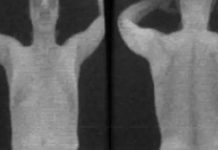- The Tragic Assassination of Charlie Kirk: A Deep Dive into the Investigation and Its Implications
In a shocking turn of events that has reverberated throughout the nation, Charlie Kirk, a prominent conservative activist, was assassinated on September 10 at Utah Valley University. Just two days later, law enforcement officials apprehended Tyler Robinson, a 22-year-old from Utah, marking the end of a frantic 48-hour manhunt. The swift capture not only brought a modicum of relief to the community but also unveiled a complex narrative involving family dynamics, political radicalization, and the daunting challenges faced by law enforcement in averting such tragedies.
The Role of Family in the Investigation
Utah Governor Spencer Cox expressed a collective sense of relief at a press conference, succinctly stating, “We got him.” However, as further details emerged, it became evident that the cooperation of Robinson’s family played a pivotal role in his arrest. Just like in many criminal cases where familial ties can both obscure and illuminate the truth, a family member—troubled by what seemed to be Robinson’s admission of guilt or implications regarding the assassination—chose to confide in a family friend. This act of bravery initiated a series of investigative leads that ultimately culminated in the suspect’s capture.
Robinson’s family dynamics were not just a peripheral aspect of the case; they were instrumental in ensuring that he was apprehended. The decision to report their concerns speaks volumes about the complexities of family loyalty versus moral responsibility. This dilemma is often amplified in cases of radicalization, where family members might struggle with loyalty to their kin versus the ethical imperative to protect society from harm.
The Investigation Unfolds
Following the tip-off, the investigation intensified, with the FBI swiftly mobilizing its resources to scrutinize every detail. Authorities meticulously sifted through hours of surveillance footage, forensic evidence, and countless tips from the public. Notably, a relative revealed that Robinson had exhibited increasingly political behavior in recent years, harboring a particular animosity toward Charlie Kirk. This political behavior, once dismissed as mere youthful idealism, now bore a sinister weight. During a family gathering, Robinson’s comments about Kirk’s upcoming speech at the university became deeply unsettling, suggesting premeditation in the violent act he would later commit.
Moreover, Robinson’s growing fixation on certain online communities, where political rhetoric often turns hostile, raised red flags among his family members. These communities, often rife with extremist views, have the potential to warp young minds, making them susceptible to radical ideologies. This aspect of the investigation urges a broader societal examination of how digital platforms can contribute to political violence, particularly among impressionable youth.
Crucial Evidence and Arrest
On September 10, surveillance footage captured Robinson arriving at the university in a Dodge Challenger. His attire—a maroon T-shirt, light shorts, and a black hat—was innocuous yet became critical evidence when investigators confronted him.
The footage recorded his movements leading up to the tragic incident, and once authorities apprehended Robinson, he was still wearing clothing that matched the video evidence, placing him firmly at the crime scene and reinforcing the case against him.
In addition to the incriminating video evidence, investigators also uncovered a series of text messages and social media posts that outlined Robinson’s thoughts on political violence and a clear disdain for Kirk.
These digital breadcrumbs added layers to the prosecution’s narrative, showcasing how online ideologies can translate into real-world actions. The collection of this evidence not only solidified the case against Robinson but also served as a stark reminder of the dangers of unchecked radicalization.
The Aftermath and Broader Implications
The arrest of Tyler Robinson has not only brought some closure to the immediate situation but has also ignited a national conversation about the implications of his actions. Former President Donald Trump and President Joe Biden have weighed in on the incident, each framing it within their political narratives.
Trump attributed the violence to hostile political rhetoric from the left, condemning what he termed a “culture of anger,” while Biden called for unity and condemned violence in any form.
This dichotomy in responses highlights the pervasive divisions within American politics and society, raising concerns about how political discourse has become increasingly polarized.
Moreover, the differing interpretations of the assassination’s motivation reflect broader societal issues. While some view Robinson’s actions as a symptom of a failed political system that fails to address rising extremism, others see it as an isolated incident driven by personal grievances.
This division complicates the discussion around political violence and emphasizes the urgent need for bipartisan efforts to foster a more civil political atmosphere.
A Community in Mourning
At Utah Valley University, the atmosphere remains heavy with grief. Students who witnessed the chaos of the shooting are grappling with trauma, with many describing the events as surreal and unforgettable.
Counseling services have been expanded to accommodate those struggling to come to terms with the incident, highlighting the urgent need for mental health support in the wake of such tragedies. The university administration has also pledged to reevaluate its security protocols, especially for events involving controversial figures.
The urgency of this review underscores the pressing need to address safety concerns in an age marked by political violence.
This tragic event has prompted discussions about the responsibilities of universities in safeguarding their students and creating an environment conducive to open dialogue without fear of violence.
It raises critical questions about how educational institutions can balance the importance of free speech with the necessity of ensuring safety, particularly when dealing with divisive political figures.
The Path Forward: Legal and Societal Challenges
As Robinson awaits trial, the investigation into his motivations continues. Family members have indicated that his online behavior and conversations prior to the attack displayed a disturbing fixation on political ideologies, exacerbated by the pernicious influence of online spaces.
The evidence—ranging from surveillance footage to witness accounts—paints a troubling picture of a young man whose radicalization culminated in an act of violence.
The broader implications are troubling: how do we reconcile the right to free speech with the necessity of protecting public safety in a deeply divided society?
Furthermore, this case brings to the forefront discussions about the role of social media platforms in monitoring and combating hate speech.
As users increasingly turn to these channels for information and community, the responsibility falls on both the platforms and society at large to mitigate the risks posed by extremist content.
This case serves as a poignant reminder of the urgent need for a comprehensive approach to political discourse that prioritizes safety and inclusivity.
The Legacy of Charlie Kirk
As the investigation unfolds, the memory of Charlie Kirk looms large. His tragic death is not merely a statistic in the surge of political violence but a relentless reminder of the fragility of civic discourse.
Governor Cox’s closing remarks at the press conference reverberate beyond Utah: “We must see this for what it is.
An attack not only on Charlie Kirk, but on all of us.” This sentiment encapsulates the shared responsibility we face as a society to safeguard democratic values and protect the sanctity of political dialogue.
The family dynamics that led to Robinson’s capture offer a glimpse of hope amidst the tragedy, illustrating that even in times of darkness, the courage to do the right thing can shine through.
This case challenges us to reflect on our own responsibilities, urging individuals to speak out against radicalization and to foster environments where dialogue can thrive over division.
The tragic events surrounding Charlie Kirk’s assassination reveal deep-seated issues regarding political radicalization and family loyalty. As the nation grapples with the implications of this act, it raises fundamental questions: How do we as a society confront rising political hostility?
How can we foster a culture that prioritizes dialogue over division? These are challenges that will require collective effort and introspection as we strive to create a safer and more inclusive society for all.

















